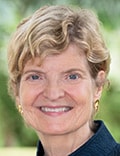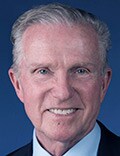Physician suicide continues to be a challenging problem in the United States. Each year 1 in 10 doctors think about or attempt suicide, and 400 die by suicide each year. More than half of the doctors reading this know a colleague who has attempted or died by suicide.
Medscape recently sat down with three psychiatric experts to talk about the newest risk-reduction initiatives. These are part of a public health suicide prevention strategy, the gold standard for prevention, in hospitals and institutions around the country. A public health model for preventing suicide is a multifaceted approach that includes universal education, health promotion, selective and targeted prevention, and treatment and recovery.
These physicians hope to continue creating and implementing these and other risk-reduction measures across all healthcare organizations.
Our physician experts for this discussion:
Mary Moffit, PhD, is an associate professor in the department of psychiatry at Oregon Health & Science University. She directs the Resident and Faculty Wellness Program and is director of the OHSU Peer Support Program. She helped design and developed a comprehensive wellness program that is now a national model for academic medical centers.
Christine Yu Moutier, MD, is the chief medical officer of the American Foundation for Suicide Prevention. She is the author of Suicide Prevention, a Cambridge University Press clinical handbook. She has been a practicing psychiatrist, professor of psychiatry, dean in the medical school at the University of California San Diego, and medical director of the Inpatient Psychiatric Unit at the VA Medical Center in La Jolla, California.
Michael F. Myers, MD, is a professor of clinical psychiatry in the Department of Psychiatry & Behavioral Sciences at SUNY Downstate Health Sciences University. He is recent past vice-chair of education and director of training in the Department of Psychiatry & Behavioral Sciences at SUNY Downstate. He is the author of several books, including Why Physicians Die By Suicide, The Physician as Patient, and Touched by Suicide.
The participants discussed these risk-reduction initiatives as having much potential for helping physicians at risk for suicide and suicidal ideations.
The Importance of Peer Support Programs
Peer support program models may differ across institutions but typically describe colleagues providing some degree of emotional first aid to peers who may be at risk.

Dr Mary Moffit
Moffit: The Pew support program that we have in place at OHSU, similar to what's available in many hospitals and systems nationwide, trains individual physicians across multiple specialties in a peer support model. It's not specifically emotional first aid, although that's integral to it. It's also for adverse events: Having a tragic patient death, having learned that you will be named in a lawsuit, and exposure to trauma in the medical role.
Peer-to-peer is not where we anticipate physicians seeking someone to talk to about their marital relationship not going well. However, the peer supporter will know about resources throughout the university and the community for what is needed. We've got 20 to 30 peer supporters. We try to match them — for example, a surgeon with a surgeon, a primary care doc with a primary care doc. Physicians who use peer support aren't tracked, and no notes are taken or documented. It takes place informally but has changed the culture and lowered a barrier. We have a waiting list of people who want to be peer supporters.
Moutier: Peer-to-peer support is usually part of a multi-pronged program and is usually not the only effort going on. Depending on how they're set up, the goals may be slightly different for each program. Peer-to-peer can be one of the most powerful ways to augment awareness-raising and education, which is almost always a basic first step.
Myers: It doesn't feel as threatening when people start in a peer-to-peer support group. Users may have been afraid of getting a mental health diagnosis, but with peers, many of whom are often not psychiatrists, that eases distress. Peer support can break down that sense of isolation and loneliness so that someone can take the next step.
Moutier: To be connected to family, to any community resource, frankly, is a protective factor that mitigates suicide risk. So that's the logic model from a suicide prevention standpoint. It may be the only opportunity for someone to start disclosing what they're experiencing, receive validation and support, and not a judgmental response. It can open up the avenue toward help-seeking.
Opt-in/Opt-Out Support for Medical Residents
This initiative matches residents with a counselor as part of their orientation.
Moffit: Each resident has a meet and greet with a counselor when they arrive or in their first 6 months at their university. The resident can opt out and cancel the meeting, but they're scheduled for it as part of their "curriculum." Institutions like Michigan, Columbia, Montefiore, Mount Sinai, and the University of California San Diego, have this in place. It starts something like, 'Hello. Good afternoon. How's it going? I'm Dr. Moffitt, and here are the services available in this program.'
Myers: It's another excellent example of normalizing the stress in the rigors of training and making it part of the wellness initiative.

Dr Christine Yu Moutier
Moutier: It's just a normal part of orientation. Again, as a universal strategy, one thing that I was doing at UCSD with a particular group of medical students, who were at higher risk, was a post-baccalaureate program that found students from under-represented, under-resourced backgrounds and brought them into this post-bacc year. I was directing it and mentoring these students.
So, I could afford a lot more intensive time and attention to them because it was a small group, but every one of them had regular meetings with me every 2 weeks. My approach was to help them uncover their unique strengths and vulnerabilities as they started this program. They all made it into med school.
It was a very intensive and more concierge-personalized approach. It's like personalized medicine. What specific self-care, mentoring, and mental health care plan would each student co-design with me to stay on track?
And it would involve very holistic things, like if part of their vulnerability was that leaving their Chicano family was creating stress because their father had said, 'You're leaving our culture and our family by going into the profession of medicine,' then we had specific plans around how to care for that aspect of their struggle. It was a much more informed, customized mentoring approach called the UCSD CAP (Conditional Acceptance Post-Baccalaureate Program). It could be a feature in a more specialized opt-in/opt-out program.
One-Question Survey: How full is your gas tank?
This initiative is a one-question survey emailed/texted to residents to check in on their wellness. We ask, how full is your gas tank? Select 1 to 5 (Empty to Full). If they flag low, they receive a follow-up.
Moffit: It's certainly a metaphor that we use. It's the idea of being depleted in combination with being extremely sleep deprived and the inability to access the usual sources of support or outlets, and how that can create a perfect storm of a level of distress that can put physicians at risk.
Moutier : It is a way to help people realize that there are things they can do proactively to keep that tank at least somewhat full enough.
Myers: Using colloquial or figurative language can get better buy-in than 'Here's a PHQ-9.' It also has a caring or intimate tone to it. Somebody could feel they're a 1 in this rotation but a 4-5 the next. We know from a lot of the literature that when residents get a good, welcoming orientation, their satisfaction with that rotation is uniformly better than if they're thrown to the wolves. And we know trial by fire can put trainees at risk.
A Buddy to Check In With
This initiative is when you're assigned a buddy in or out of residency that you regularly check in with about how you're doing.

Dr Michael Myers
Myers: Not to be cynical, but there has been some mentor/mentee research that if you're assigned a mentor, the results are not nearly as good. And if it's left to the individual to find a mentor, results could be marginal as well. You need a guide to say, 'Here are some potential mentors for you, but you decide.' We do a lot of that at [SUNY] Downstate instead of assigning a person. So, it may require some oversight. Picking a check-in buddy from a list provided rather than having one assigned may be more beneficial.
A lot of what we're talking about are universal strategies that allow for increased interpersonal connection, which is a protective factor that normalizes help-seeking.
A Platform or Social Media Forum to Share Experiences
An online forum or platform where medical students, residents, and physicians can discuss mental health and suicide prevention. Physicians with personal experience could provide testimonials.
Myers: I've recently signed a book contract, and the working title is Physicians With Lived Experience: How Their Stories Give Clinical Guidance. When I talk with doctors who have published their personal stories in the New England Journal of Medicine, JAMA, or sometimes The Washington Post or The New York Times, many of them have said they had no idea at the beginning of their journey that they would do something like this: be transparent about their story. It's a measure of their health, growth, and grace.
Moutier: The current president of the Academic Association of Surgeons (AAS), Carrie Cunningham, MD, MPH, used her platform at the annual AAS conference last year to focus on suicide prevention. She told her own recent story of having gotten into recovery after having been near suicide and struggling with addiction. It was a groundbreaking moment for the field of surgery and produced a ripple effect. She risked everything to tell her story, which was highly emotional since it was still raw. It got everyone engaged, a real turning point for that field. Storytelling and a place for trainees to discuss suicide prevention, and physicians to recall their lived experiences can be highly beneficial.
Interactive Screening Program (ISP)
The Interactive Screening Program is used in higher education to allow physicians to take a safe, confidential screening test and receive a personalized response that can connect them to mental health services before a crisis emerges.
Moutier: ISP is a tool within a public health model that can afford anonymity to the user so they can safely have their needs addressed. It's a way for high-risk individuals to sync up with treatment and support. It's sometimes used in the universal approach because it can be offered to everyone within the health system community of physicians and staff.
It can produce a ripple effect of normalizing that we all have mental health to take care of. Its intended value is in identifying those with a higher risk for suicide, but it doesn't stop at identifying those at risk. It helps physicians move past a stage of suffering in silence.
Our data show that 86% of a very high-risk group (currently having suicidal ideation, a recent attempt, or other high-risk factors for suicide) aren't in any form of treatment and have not disclosed their situation to anyone. A fairly high percentage of those going through ISP request a referral to treatment. It's a unique, very niche tool, and because users remain anonymous, that affords safety around confidentiality.
It's usually part of a multi-pronged approach with education, stigma reduction, storytelling, peer support, and other modalities. In my experience with the UCSD HEAR (Healer Assessment Education and Recovery) program, which is still going strong in about its 15th year, the program went from seeing 13 physicians die by suicide in the years leading up to its launch and in the 15 years since it's been going, one suicide. We all believe that the ISP is the heart of prevention.
Even though all of the universal strategies are important, they probably wouldn't be sufficient by themselves because the risk [for suicide] is dynamic, and you have to catch people when they are suffering and ready to seek treatment. Suicide prevention is challenging and must be strategic, multifaceted, and sustained over time.
The Importance of Confidentiality for Physicians
In the past, physicians may have been hesitant to seek treatment when struggling with mental health, substance use disorder and suicidal ideations because they heard stories from doctors who said they had to disclose mental health treatment to medical and state licensing boards.
Myers: There is so much dated stuff out there, and it gets propagated by people who have had a bad experience. I'm not challenging the authenticity of that, but I feel like those are in the minority. The vast majority of people are seeking help. The Federation of State Physician Health Programs is working with state boards to update and get rid of antiquated questions, and they're working with credentialing groups.
When I was in practice and my patient was petrified of having to come into the hospital [because of confidentiality] I would just be their physician and say, 'Look, I know that this is a worry for you [licensing and credentialing issues] but trust me, I'm going to help you get well; that's my job. And I'm going to help you sort all that out afterward.' It was part of my work as their physician that if they were going to have to jump through hurdles to get their license reinstated, etc., I could help.
The Dr Lorna Breen Heroes' Foundation is also doing so much good work in this area, especially with their toolkits to audit, change, remove, and communicate the changes about intrusive language in licensing applications and credentialing. (Dr Breen was a New York City emergency room physician who died by suicide in April 2020 during the early days and height of the COVID-19 pandemic. Her father was quoted as saying, "She was in the trenches. She was a hero.")
Moutier: We're seeing hundreds of physicians get therapy and psychiatric treatment annually. And the advocacy effort is incredibly important, and I think we are witnessing a swifter pace to eliminate those inappropriate and illegal questions about mental health and mental health treatment for physicians and nurses.
Moffit: We have lowered barriers, not only in individual institutions but also with programming. We have also worked with the Federation of State Medical Boards and The Lorna Breen Foundation to change the legislation. The Foundation has audited and changed 20 state medical boards to remove intrusive language from licensing applications.
Support For Colleagues Working to Help Each Other
Myers: One final note for those physicians who need to take time out for medical leave: In my clinical experience, I find that they felt lonely as they were getting well. I can't tell you how much it made a difference for those who received a phone call, a card, or an email from their colleagues at work. It doesn't take long for a vibrant, active physician to feel out of the loop when ill.
We know from suicide literature that when somebody's discharged from the hospital or the emergency department, caring communications, brief expressions of care and concern by email, letter, card, text message, etc., can make all the difference to their recovery. Reaching out to those struggling and those in recovery can help your fellow physician.
Jennifer Nelson is Features Editor, Reports at Medscape. Her work has also appeared at WebMD, Medical Economics, MedPage Today, as well as The Washington Post, AARP, US News & World Report, The Oprah Magazine, Women's Health and others.
For more news, follow Medscape on Facebook, Twitter, Instagram, YouTube, and LinkedIn
Credits:
Lead image: E+/Getty Images
Image 1: Jordan Sleeth
Image 2: Christine Yu Moutier, MD
Image 3: Marcos Lainez
Medscape Medical News © 2023 WebMD, LLC
Send news tips to news@medscape.net.
Cite this: Physician Suicide Roundtable: 8 Important Initiatives That Can Help - Medscape - Jun 27, 2023.










Comments